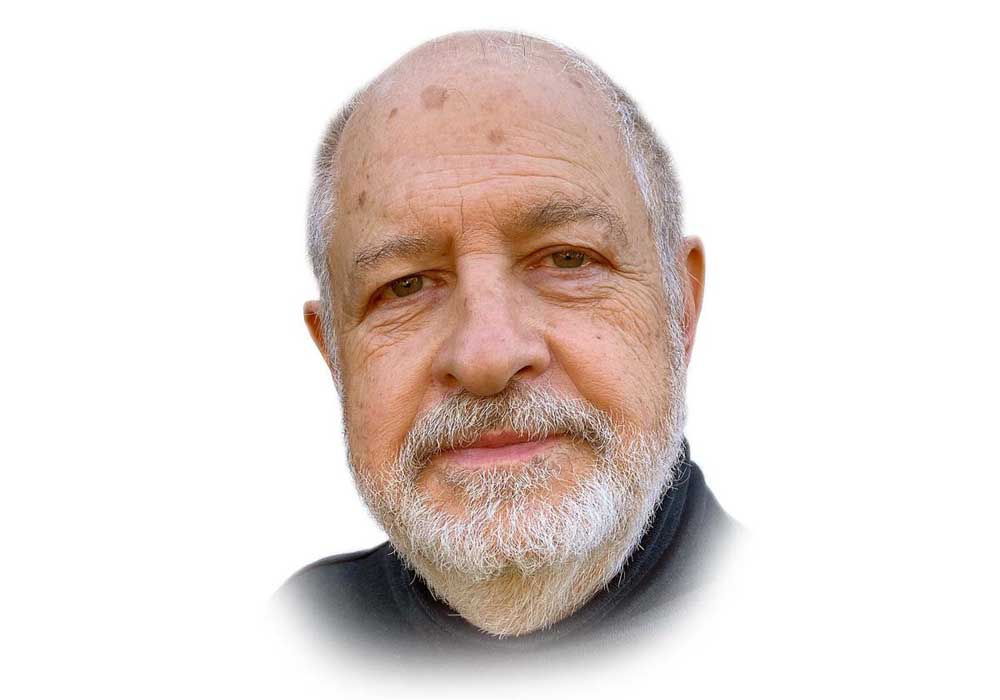Guest Column: How far do we go to cancel Russian culture?
Published 12:30 am Saturday, December 24, 2022

- Andre Stepankowsky
For 30 years, I’ve cherished a black fur Russian shapka ushanka (ear hat) that I bought in St. Petersburg for $35.
Trending
The hat has traveled many places, including once sliding down an icy ski slope ahead of me when I wiped out a quarter-mile uphill. Such hats are almost synonymous with Russia, which is home to a part of my ancestry.
What really makes it special, though, is that I purchased it the last time I saw my dear friend Michael Kulis. Michael, a St. Petersburg native, was a thoroughly humane and loyal friend and a terrific guide and translator for me during two reporting trips to Russia. The shapka, which I bought from a street vendor with Michael’s help and negotiation, became all the more dear when a heart attack killed him a year or so later.
So why have I not worn it since last winter — and continue to be torn about whether to wear it now?
Trending
Because — like just about anything Russian these days — it seems tainted by Vladimir Putin’s genocidal war on Ukraine. Refusing to wear my shapka is a symbolic protest and way to keep solidarity with friends in Ukraine.
The matter is highly personal, because I have Ukrainian blood, too. My grandfather was a Ukrainian patriot who agitated for his people’s independence at the turn of the 20th century. I know how much blood has been shed over the centuries to make Ukraine free of Russian imperial autocracy — and why it is important to hold the line against Putin’s aggression.
How far should it go?
But how far should cancel-Russian-culture go?
Putin’s war has rightly led to all kinds of economic sanctions against Russia, including calls to boycott Russian vodka and oil and the seizure of Russian oligarchs’ yachts and other assets.
Yet Ukrainian artists and cultural institutions want Russia isolated even more. They call for a worldwide ban on Russian music, sports, dance and other culture as long as the Russian army occupies any part of Ukraine. No one, they say, should enjoy or promote Russian culture while the invaders are relentlessly trying to obliterate Ukrainian museums, libraries, schools and nation’s very self-identity.
Scores of Russian cultural events in Europe and North America have been canceled, including performances by Russian artists who disapprove of the invasion. Russians have been excluded from world athletic competitions. Western orchestras have canceled concerts featuring Russian composers.
However, the response has been uneven. The National Hockey League, for example, has not suspended the contracts of Russian players. There are many of them in the league, and few have dared criticize Putin’s regime. It’s easy to understand their hesitancy: Russian athletes, musicians, writers and performers may be far enough outside Russia to escape retribution if they knock Putin, but their families and relatives back home are not.
Drawbacks
Boycotting and demonizing everything Russian has at least four drawbacks.
One, are we at war with the Russian people or with Putin? I doubt that the vast majority of Russians want this war. You can’t trust opinion polls. And the exodus of young men and professionals tells me that few Russians agree with Putin’s diatribes against Western immorality and his Slavophile wish to restore the Russian and Soviet empires.
Second, no culture is an entity to itself. The idea that music, art, dance and sport are the exclusive contribution of any one nation forgets that great art and culture arise from the crosscurrents of human intercourse. Culture is the product of the human family, not a single nationality.
So you see why, for example, it makes no sense to boycott performances of “The Nutcracker.” The beloved Christmas-season tale was written by German romantic E.T. A. Hoffmann based on a story by a Frenchman Alexandre Dumas. It was made famous by the ballet music of Russian composer Peter Tchaikovsky. His 1892 score glitters with Russian magic. But it was made possible by Tchaikovsky’s mastery of Western musical forms and harmonic theory.
That ballet dates from a 50-year period when Russia was a world leader in literature, art and dance. Are we to mothball the famous “ballet Russes” — developed by Russian Sergei Diaghilev and staged in Paris— just because of Putin? Are we not to read “Crime and Punishment,” Fyodor Dostoevsky’s warning about political supermen, like Putin fancies himself to be? Should we discard other politically critical works by more modern Russian writers, such as “Doctor Zhivago” by Boris Pasternak, “The Master and Margarita” by Mikhail Bulgakov and the “Gulag Archipelago” by Alexandr Solzhenitsyn?
Our world is richer because of Russian culture, just like the National Hockey League is better because of the contributions of Russian players.
Third, rejecting everything Russian drives a wedge between us and the Russian people. Putin can exploit such divisions to bolster his opposition to the West. Russians in general have long suffered paranoia about foreigners, and rejecting their culture may just make them more isolated, vulnerable and suspicious of Western liberalism.
Four, we accomplish little by treating everything Russian as complicit in Putin’s butchery. He likely does not care that a Russian tennis star was banned from Wimbledon last summer or that a Russian-themed restaurant in Washington, D.C., was vandalized shortly after the invasion began in February.
Culture and sports have been used repeatedly as a whip for political punishment. The strategy rarely works. The U.S. boycotted the 1980 Summer Olympics in Moscow over the Soviet invasion of Afghanistan. The Nazis banned the music of Jewish composers during World War II.
On the other hand, cultural exchange works well as an instrument of peace and cooperation. Pingpong diplomacy, for example, helped lead to the restoration of diplomatic relations between the U.S. and China in the 1970s.
Because we are engaged in a war to defend Ukraine, it’s better to learn about Ukrainian history and culture than trash all Russia’s traditions and achievements. If you feel compelled to help the Ukrainian cause more directly, donate to charities helping Ukrainian war refugees and support U.S. aid. Or donate to the local Ethnic Support Council, which is helping several Ukrainian war refugees who recently moved into the Longview and Kelso area of Washington state.
Still, I get the importance of symbolic actions. I’m still torn. My shapka likely will stay on the shelf for now.









